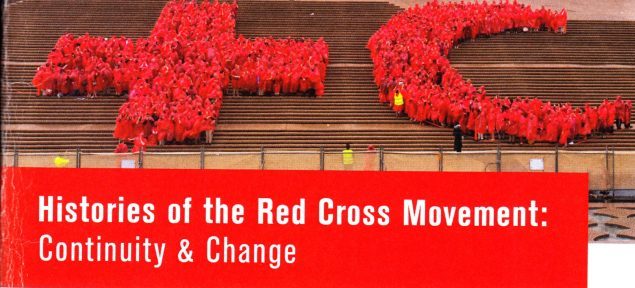Ian Willis reports
The Australian Red Cross Society is part of one of the world’s most important humanitarian organisations. It has provided relief in times of crisis for 100 years. The International Red Cross and Red Crescent movement has seven guiding principles: humanity, impartiality, neutrality, independence, voluntary service, unity and universality. The origins of the movement are located in mid-nineteenth century Europe; now it comprises around 190 national societies, including Australia’s, which was founded in 1914.
This year marked a global first for Australia ‒ it held an inaugural conference, Histories of the Red Cross Movement: Continuity and Change, for historians, archivists, curators and others interested in exploring historical ideas and contexts within the Red Cross Movement. An increasing number of historians has taken an interest in the Red Cross since the International Committee of the Red Cross and International Federation of Red Cross and Red Crescent (IFRC) societies opened their archives in the 1990s.
At a local level the NSW State Library and Red Cross announced in August the transfer to the library of the records of the NSW division of the Australian Red Cross, while the national society is moving its records to the University of Melbourne Archives. These are part of the ‘Gift to the Nation’ program announced by the Australian Red Cross in its centenary in 2014.
Conference organisers Melanie Oppenheimer of Flinders University (SA) and Neville Wylie from University of Nottingham (UK) spent over two and half years developing the idea from a chance meeting in Singapore in 2014. They felt it was time to hold a conference on international Red Cross history and invited Christine Crossland (Flinders University) and James Crossland (Liverpool John Moores, UK) to join them in realising their idea.
The conference – Histories of the Red Cross Movement: Continuity and Change – was hosted by Flinders University in early September. The conference was additionally sponsored by the Australian Red Cross and The University of Nottingham.
There were 49 papers presented over the three days with more than 90 delegates from Australia and the UK, USA, New Zealand, Japan, the Philippines, France, Spain, Germany, Norway, Canada, the Netherlands and Switzerland. An additional meeting of archivists was hosted by Grant Mitchell from the International Federation of Red Cross Archives in Geneva, Switzerland.
The highlight of the conference was the depth and breadth of historical issues raised by presenters in the globalised context of today’s Red Cross movement. These also revealed the similarities that exist across different national societies.
The keynote speakers addressed the theme of humanitarianism and the Red Cross, while other papers ranged across topics from national histories to the origins of the movement, museums, gender, colonialism, tracing services, repatriation, charity, blood transfusion, disasters extending to the international reach of the Red Cross, militarisation, and war and conflict. A film evening was organised with screenings from the archives of the IFRC shown at Adelaide’s Art Deco Capri Movie Theatre.
Humanitarian work involves confronting life and death issues, now and in the past. It is not an area for the faint hearted and can involve ‘shaking hands with the devil’, including dealing with those who commit genocide. The Red Cross movement goes where many fear to tread and many have failed in the past.
The conference convenors are to be commended for organising a ground-breaking event, which might encourage others to engage in this area of research. Humanitarianism is a vexed area where there are no easy answers for the Red Cross movement or others. An historical perspective can shine a light into some dark corners of the world and give a clearer view of issues that would be for the betterment of all of humanity.
[Editorial note: Ian Willis also presented at the conference on the topic of Rest, recovery and rehabilitation: Red Cross convalescent homes in New South Wales from 1915.]

It is great to hear that the Australian Red Cross archives will go to public research institutions.
I am helping Coonamble Red Cross (formed 1914) write a small history. Its records are held in the local community archives at Coonamble.
What a terrific conference. Thank you for the post. I have been researching the history of the Red Cross branch that was set up in Randwick in 1914.